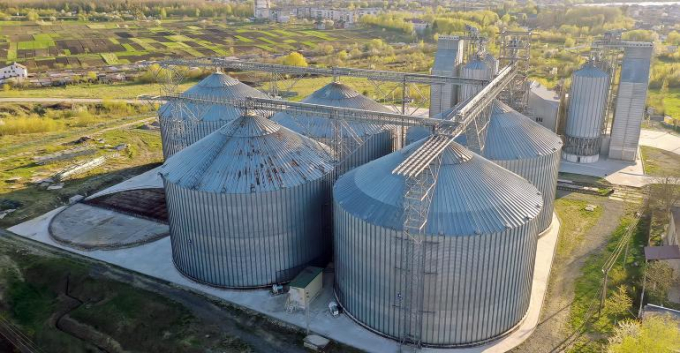June 21, 2025 | 02:06 GMT +7
June 21, 2025 | 02:06 GMT +7
Hotline: 0913.378.918
June 21, 2025 | 02:06 GMT +7
Hotline: 0913.378.918

Why a rally is not necessarily good news for grain elevators. Photo: farmprogress
If a farmer sells grain at $4 per bu. to the elevator and the price goes to $5, the farmer can feel like they’ve lost out on a dollar and feel like the elevator gained a dollar.
The key is to understand both futures and basis to uncover: How does an elevator make money? And how do they not make money? In this case we’ll focus on the elevator being a buyer of grain and then reselling to a processor or onto a train or barge to be shipped out to end users.
With futures being the main tool for everyone in the system to use to manage and transfer risk, your elevator likely has a charter that prohibits them from having price risk in the futures market. As soon as they buy corn from you and you’ve locked in the futures price and basis, they’ve assumed the ownership and risk. At that moment, their risk is that futures continue to go down, and that basis continues to get worse.
When you sell an elevator corn at $4.20, for example, their risk is that corn goes lower. They’re going to sell futures as well and transfer the price risk away from themselves. Then, whether futures go up or down, they aren’t carrying that risk.
Their risk is related to whether or not basis changes. The main way an elevator makes a profit is around basis fluctuations. If they already have a destination where someone is willing to pay them 10 cents over for corn and it costs 20 cents to ship it to that buyer, and the elevator can buy corn from you for 20 cents under, then they’ve been able to make 10 cents – regardless of whether the futures price went up or down.
Elevators sometimes buy corn at a low basis, anticipating that over time, basis will improve. The basis, as well as transaction, handling and dryer fees, are the main ways that the elevator makes money – rather than through changes in the futures price.
In fact, if you sell corn to an elevator and the price of grain rallies, they have to pay interest on the money to fund their short futures position. A rally actually costs them money. So, they’re not excited about corn rallying a dollar or two after you sell it to them, either.
(farmprogress)

(VAN) Poultry production in Poland, which has only started recovering from devastating bird flu outbreaks earlier this year, has been hit by a series of outbreaks of Newcastle disease, with the veterinary situation deteriorating rapidly.

(VAN) Extensive licensing requirements raise concerns about intellectual property theft.

(VAN) As of Friday, a salmonella outbreak linked to a California egg producer had sickened at least 79 people. Of the infected people, 21 hospitalizations were reported, U.S. health officials said.

(VAN) With the war ongoing, many Ukrainian farmers and rural farming families face limited access to their land due to mines and lack the financial resources to purchase needed agricultural inputs.

(VAN) Vikas Rambal has quietly built a $5 billion business empire in manufacturing, property and solar, and catapulted onto the Rich List.

(VAN) Available cropland now at less than five percent, according to latest geospatial assessment from FAO and UNOSAT.

(VAN) Alt Carbon has raised $12 million in a seed round as it plans to scale its carbon dioxide removal work in the South Asian nation.